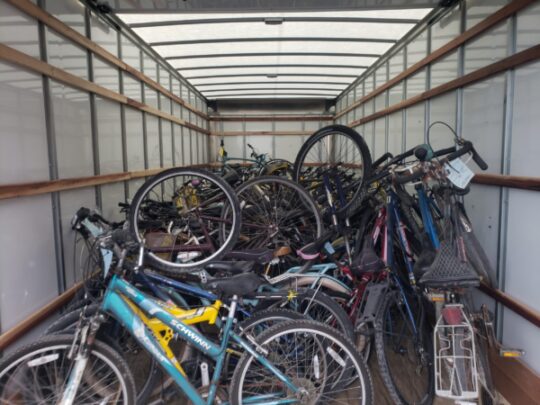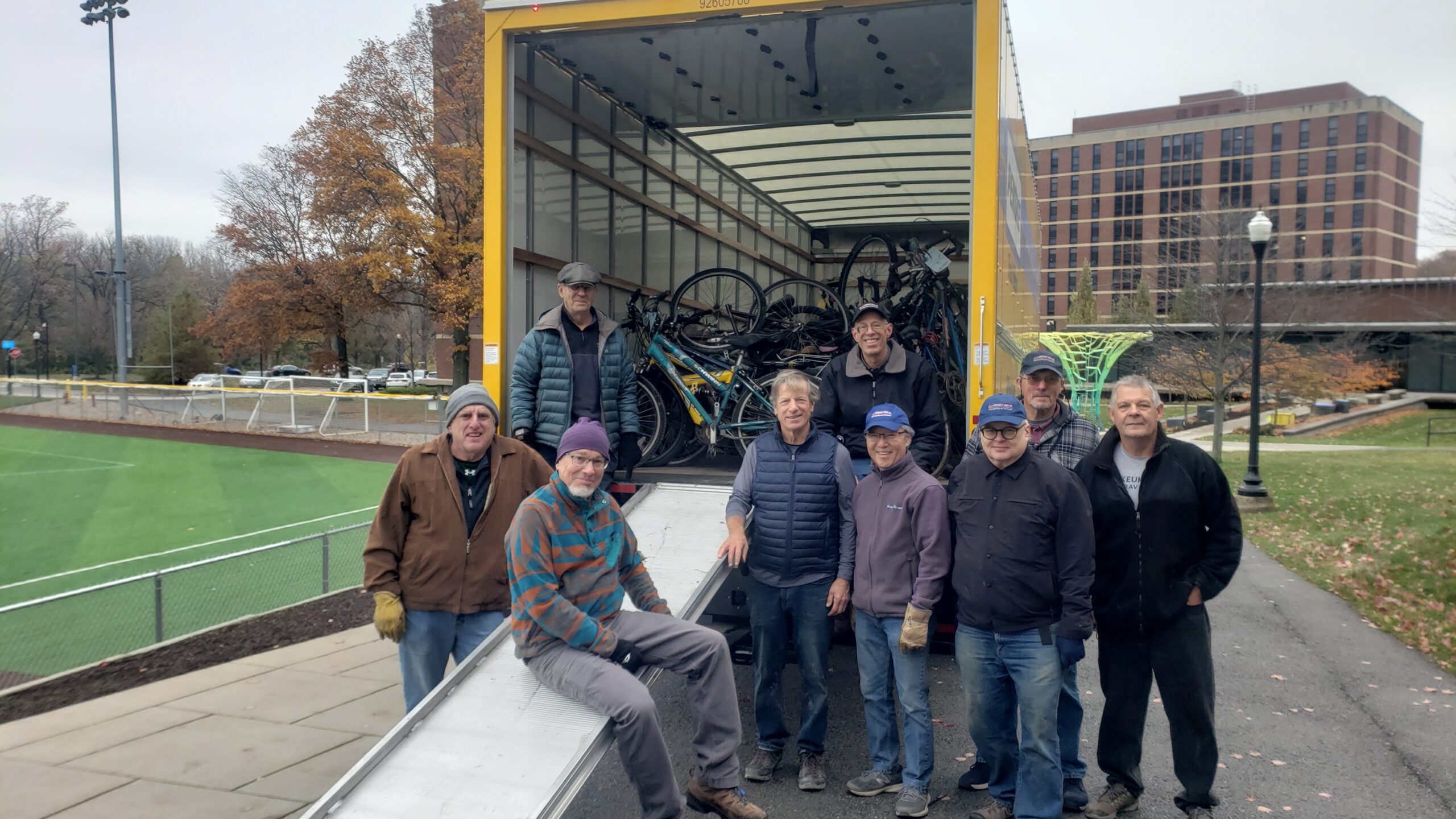Ever wonder what happens to the bikes that are left behind around campus? In an effort to provide access to safe alternative transportation, the Department of Transportation and Logistics partners with R Community Bikes to distribute refurbished bikes throughout Rochester. Last month, R Community Bikes received 66 bikes from the University, all destined for a tune up and into the hands Rochester residents who lack reliable and safe transportation.
R Community Bikes is a grassroots nonprofit organization that collects and repairs used bikes to be freely distributed to residents, community organizations, churches, youth centers, and neighborhood associations throughout Rochester. R Community bikes also provides free minor bike repairs at their main location and at pop-up events around Rochester during warmer months. R Community Bikes is staffed by volunteers and relies on community donations to thrive. To help supplement costs, R Community Bikes also sells affordable refurbished bikes year-round.
The bike donation program is a collaboration across University departments, including Horticulture and Grounds and Public Safety. The collection process begins with Transportation and Logistics identifying and tagging abandoned bikes across campuses. If after a grace period the owner does not retrieve the bike, the bike is collected and classified for donation. They are temporarily stored until the University is able to donate them, typically at the end of each year. Transportation and Logistics delivered a total of 66 bikes, the largest the University donation in four years and equating to nearly a ton of bike material otherwise headed for the landfill.
The R Community Bikes partnership is another way that the University supports sustainable and community-based transportation options. Andrea Walton, Manager of Transportation and Logistics, plays a leading role in coordinating the R Community Bikes partnership, which is one of her favorite programs. “R Community Bikes holds free semi-weekly bike giveaways benefitting residents who lack other forms of transportation,” she says. “It’s amazing to see bikes we donate getting refurbished and then reused by individuals who can really benefit from them.”
The bike donation program is not only beneficial to the community, it is also a creative way to minimize waste. “The program furthers the University’s sustainability goals by helping to keep bikes out of landfills and reusing materials,” Walton says. When donated bikes cannot be used, R Community Bikes uses salvaged parts to refurbish other bikes.

Improving accessibility to bikes and providing safety education is a good example of how sustainability and economic justice intersect. As an alternative mode of transportation, bike riding can help to reduce carbon emissions on a large scale and in cities like Rochester they also address fundamental transportation needs for low-income residents. Since the Rochester light-rail rapid transit shut down in 1956 and the Inner Loop completed in 1965 —dividing neighborhoods and car-free transportation routes—residents without cars have relied mainly on the Regional Transit Service (RTS). Based on the City of Rochester Transit Supportive Corridors Study, neighborhoods with the highest density of residential housing are the least prepared to have alternative transit infrastructure, making it is harder to provide reliable and efficient non-car transit options in those areas.
Providing access to bikes and education on safe riding practices gives Rochester residents more options for transportation that does not require a car, resulting in less vehicle-related emissions and creating equitable access to urban transportation. With plans for the City of Rochester to fill another portion of the Inner Loop, there will be moves to make Rochester a friendlier place for bike riders, especially in lower income neighborhoods impacted by racial and economic segregation. To learn more, about connections between poverty and transportation in Rochester, explore the resources provided by Reconnect Rochester, a nonprofit that champions transportation choices to enable a more vibrant and equitable community.
For more information on all forms of alternative transportation, including what makes the University an award winning bike-friendly campus and how to subscribe to the Green Commuter newsletter, visit the University’s Green Commuter page. As the demand for environmental justice action grows, so does the need for solutions like the bike donation program as a tangible way to advance the University’s sustainability and economic justice goals.
Written by Carmen Marshall ‘25
Photo by Andrea Walton / University of Rochester

